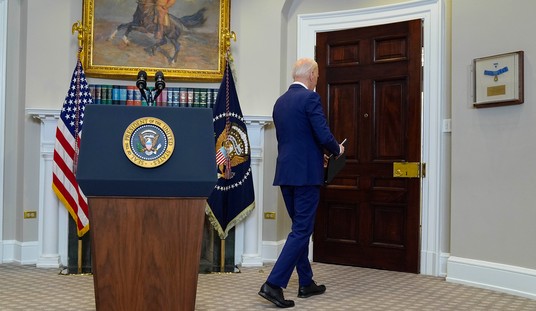During the midterm campaign, Republicans assured voters that they would put an end to the free-spending ways of Barack Obama and the Democratic majority. Now that they have taken control of the House, that fiscal discipline will be put to the test sooner rather than later. Republicans have to draft a budget for the remainder of FY2011 after Democrats failed to do so with large majorities, and that will also mean taking into account the rapidly-approaching debt ceiling. Will Republicans allow more borrowing or hold their ground on demanding deep cuts in government spending instead? The fight is shaping up as a battle within the new majority, Politico reports, and perhaps a Rorschach test for newly-elected conservatives:
The debate has produced some strange bedfellows. Allen West, the Tea Party favorite, aligns himself with Lindsey Graham in grudgingly backing another increase as long as Congress produces serious limitations on future spending. Mike Kelly from more moderate Pennsylvania agrees with spending hawk Michele Bachmann in utterly opposing another increase in the debt ceiling, regardless of whether spending cuts get enacted or not. Meanwhile, the same Democrats who increased the federal budget by almost 40% in three budget years now claim that a default on obligations will be laid at the feet of Republicans attempting to stop the explosion of national debt.
There are two problems here, one short-term and one long-term. The national debt will rise above the limit increased last year by Democrats at the end of their spending spree in short order, and the question of defaulting on debt service becomes real and could create a lot of economic damage. However, increasing the debt limit essentially puts off the inevitable, and it also allows Congress to procrastinate on the only long-term solution, which is to cut spending. Refusing to raise the debt limit would force the federal government to stop spending or create a default, but much of that spending occurs through entitlements — which means that the only real way to meet the current debt limit in the short term would be to severely cut non-entitlement areas, which would probably require significant cuts at the Pentagon.
In the long term, we need entitlement reform to reduce government spending, a reduction in the regulatory regimes at the federal level, and a massive scaling back of jurisdiction in relation to that as well. Not only would that reduce spending to rational levels, the economic boom it would create would raise revenues at the same time. In the short term, it might take one more bump on the debt limit to get through the process of restructuring the federal government to avoid default. Long term, conservatives all agree on the real solution.








Join the conversation as a VIP Member